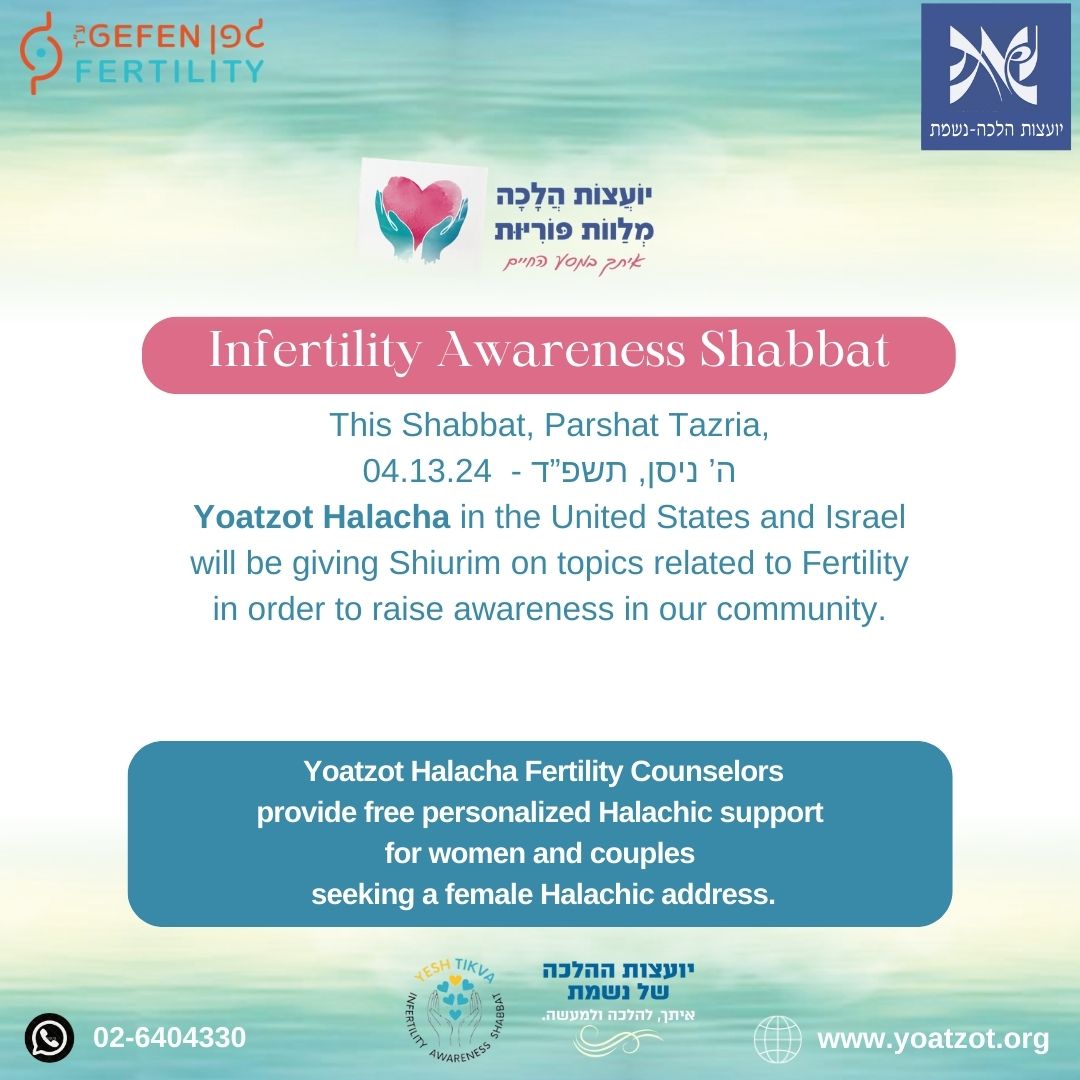Induction eight days before fast day
28 February, 2009
 Question:
Question:I am one week past my due date (41 weeks) and my doctor wants to induce me this Monday (that is if the baby has not come already).
This Monday is 6 Adar – which means that if the baby is a boy, the brit milah will be on Taanit Esther.
We don't know the gender of the child so it may not matter, but once we're planning to induce the baby should we ask the doctor if it can wait another day to avoid the potential problem of having to arrange a seudat mitzvah on Taanit Esther?
On another note – part of inducing labour may require the doctor to break my waters if it does not happen naturally. I've read that this might bring on niddah, or that it depends on the instrument used. Please could you clarify this for me?
Answer:BeSha'ah tovah!
The time to induce the childbirth is really a medical decision and thus not affected by the potential of having a brit milah on Ta'anit Esther. In such a case, the father, sandak, and mohel eat the seudat mitzvah after the brit. (The mother is permitted to eat because she gave birth!) The seudah for the rest of the guests is pushed off to the evening.
Whether the waters' breaking brings on niddah status is a matter of dispute. Our rabbinic supervisor, Rav Yehuda Henkin, holds that it does not make a woman a niddah on its own unless there is attendant bleeding.
For all procedures that enter the uterus, the size of the instrument that enters is also important. Instruments larger than a certain size render a woman niddah even if there is no bleeding. Opinions as to this size vary. R Henkin rules that an instrument with a diameter of 19mm or more would make a woman niddah.
This internet service does not preclude, override or replace the psak of any rabbinical authority. It is the responsibility of the questioner to inform us of any previous consultation or ruling. As even slight variation in circumstances may have Halachic consequences, views expressed concerning one case may not be applied to other, seemingly similar cases. All health and health-related information contained within Nishmat's Women's Health & Halacha Web site is intended to be general in nature and should not be used as a substitute for consulting with your health care professional. The advice is intended to offer a basis for individuals to discuss their medical condition with their health care provider but not individual advice. Although every effort is made to ensure that the material within Nishmat's Women's Health & Halacha Web site is accurate and timely, it is provided for the convenience of the Web site user but should not be considered official. Advice for actual medical practice should be obtained from a licensed health care professional.
For further questions or comments: 
The Nishmat Women's Health and Halacha Site is a public service of Nishmat, The Jeanie Schottenstein Center for Advanced Torah Study for Women. This project and others like it are made possible by contributions from people like you. If you have benefited from the service, and wish to enable us to help others, click here to donate.
Users of Internet filtering services: This site discusses sensitive subjects that some services filter without visual indication. A page that appears 100% complete might actually be missing critical Jewish-law or medical information. To ensure that you view the pages accurately, ask the filtering service to whitelist all pages under yoatzot.org.






 Question:
Question:







